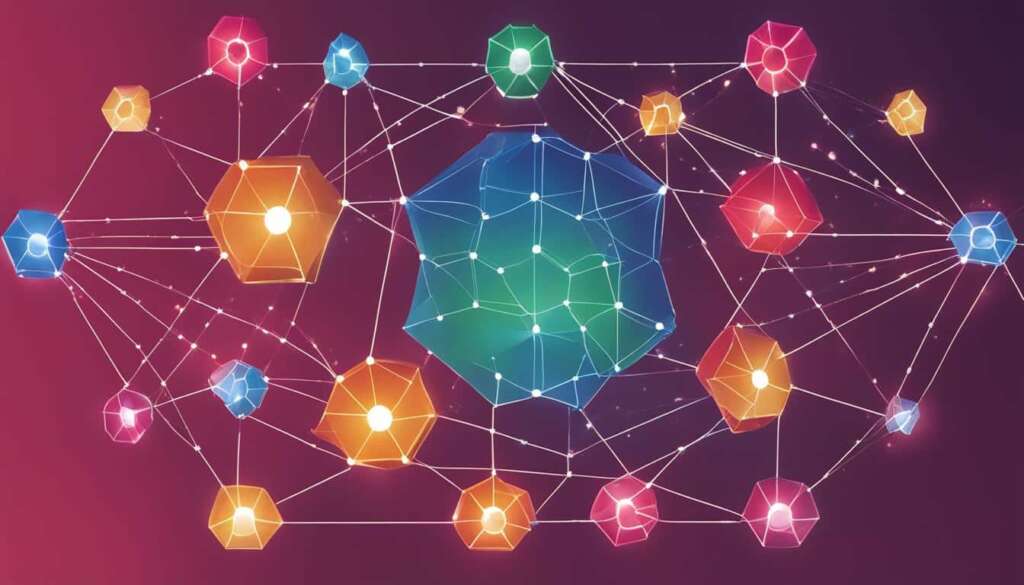Table of Contents
In today’s digital age, the access economy has revolutionized how resources and data are shared. However, with this increased connectivity comes the need for robust cybersecurity measures. Cybersecurity in the access economy is essential to protect shared resource data from unauthorized access and potential cyber threats.
As businesses and individuals rely on the access economy for convenient and efficient resource sharing, cybersecurity becomes a crucial aspect. Policy makers and industry stakeholders face the challenge of balancing the benefits of data sharing with the risks involved.
Trust, data ownership, and privacy are key considerations in developing effective cybersecurity measures for the access economy. By implementing robust cybersecurity protocols, businesses and individuals can safeguard their data and build trust among users.
With the increasing prevalence of cyber threats, it is imperative to address cybersecurity in the access economy. By prioritizing cybersecurity measures, businesses and platforms can protect user data and ensure the integrity of shared resources.
In the following sections, we will explore the challenges of balancing benefits and risks, strengthening trust and empowering users, encouraging sustainable business models, and the importance of collaborative ecosystems in enhancing cybersecurity in the access economy.
The Challenges of Balancing Benefits and Risks in the Access Economy
Policymakers in the access economy face a significant challenge in striking a balance between the benefits of enhanced data access and sharing, and the inherent risks involved. While sharing valuable resources and data can drive innovation and economic growth, it also exposes individuals and organizations to cybersecurity vulnerabilities.
One of the primary concerns is how to protect user data while enabling seamless data sharing across platforms and borders. Policymakers must consider legitimate private, national, and public interests when formulating access economy security measures. This involves implementing robust cybersecurity protocols to safeguard user information from unauthorized access, breaches, and misuse.
Furthermore, privacy and data ownership are critical considerations in the access economy. Users must have confidence that their personal information is protected and that they retain control over their data. Policymakers need to address these concerns by developing clear guidelines and regulations that emphasize privacy and security measures in the access economy.
Key Challenges:
- Striking a balance between the benefits and risks of enhanced data access and sharing
- Addressing legitimate private, national, and public interests
- Reducing barriers to cross-border data flows
- Safeguarding privacy and data ownership
“The access economy presents us with a unique set of challenges when it comes to cybersecurity. As we embrace the benefits of data sharing, we must also prioritize the protection of user data and privacy. Striking the right balance requires careful consideration of various interests and the implementation of robust security measures.” – Cybersecurity Expert
| Challenges | Risks | Solutions |
|---|---|---|
| Enhanced data access and sharing | Potential cybersecurity vulnerabilities | Implement robust security protocols |
| Privacy and data ownership | Lack of control and potential misuse of personal information | Develop clear guidelines and regulations emphasizing privacy and security |
| Cross-border data flows | Increased risk of unauthorized access and breaches | Reduce barriers and implement secure data transfer mechanisms |
Addressing the challenges of balancing benefits and risks in the access economy requires a multi-faceted approach. Policymakers must collaborate with industry experts, technology providers, and user communities to develop effective access economy security measures that protect user data while fostering innovation and economic growth.
Strengthening Trust and Empowering Users in the Access Economy
Building trust and empowering users are critical in facilitating data sharing and maximizing the value of data re-use in the access economy. In order to ensure cybersecurity for sharing economy, it is essential to invest in data-related skills, infrastructure, and standards. By doing so, we can lay the foundation for a secure and resilient access economy.
Clear guidelines on privacy and security measures are essential to protect user data in the access economy. Access economy data protection is paramount, as it ensures that sensitive information remains confidential and secure. By establishing robust protocols and safeguards, we can instill trust and confidence in users, fostering an environment conducive to data sharing and collaboration.
Furthermore, maintaining community engagement is crucial in the access economy. When users feel involved and connected, they are more likely to actively participate and adhere to cybersecurity practices. This can be achieved through regular communication, education, and awareness campaigns that emphasize the importance of access economy privacy and security.
Ultimately, a strong focus on strengthening trust and empowering users is fundamental to the success of the access economy. By prioritizing cybersecurity measures and promoting data protection, we can create an environment that not only fosters innovation and collaboration but also ensures the privacy and security of user data.
Encouraging Provision of Data and Sustainable Business Models in the Access Economy
The access economy relies heavily on the sharing of data and resources, making cybersecurity a vital consideration. To ensure the smooth functioning of this economy, it is essential to encourage the provision of data through incentive mechanisms and sustainable business models. This requires addressing uncertainties regarding data ownership, privacy, and intellectual property rights.
Access economy platforms play a crucial role in facilitating data sharing, and they must prioritize implementing robust cybersecurity measures to protect user data and maintain trust. By doing so, they can create an environment where users feel secure in sharing their data, leading to a more vibrant and sustainable access economy.
Table: Key Trends in Access Economy Cybersecurity
| Trend | Description |
|---|---|
| Incentivizing Data Provision | Exploring innovative ways to reward users for sharing their data, such as offering discounts, exclusive access, or personalized experiences. |
| Ensuring Data Privacy | Implementing strong data protection measures, such as encryption and anonymization techniques, to safeguard user data and comply with privacy regulations. |
| Collaboration with Cybersecurity Experts | Partnering with cybersecurity professionals to conduct regular audits, vulnerability assessments, and penetration testing to identify and address potential security risks. |
| Educating Users about Cybersecurity | Providing users with clear guidelines on how to protect their data, including tips on creating strong passwords, avoiding phishing emails, and being cautious with sharing personal information. |
| Continuous Monitoring and Incident Response | Implementing real-time monitoring systems and response protocols to detect and mitigate cyber threats promptly, minimizing the impact on users and the access economy ecosystem. |
By embracing these trends and focusing on cybersecurity, the access economy can thrive and continue to provide value to its users while safeguarding their data. It is crucial for all stakeholders, including policymakers, platform operators, and users, to work together towards building a secure and sustainable access economy.

The Need for Balancing Openness with Other Legitimate Interests and Risks
While enhanced data access and sharing can bring social and economic benefits, it also poses risks such as confidentiality breaches and privacy violations. In the access economy, where shared resource data is a valuable asset, striking a balance between openness and safeguarding privacy, intellectual property rights, and national security is crucial. The emergence of new legislation, such as the Data Sharing and Release (DS&R) framework in Australia, highlights the ongoing efforts to address these challenges.
In order to protect privacy and ensure data integrity, policymakers and organizations need to consider the potential risks associated with increased data access. Confidentiality breaches and privacy violations can have significant implications for individuals, organizations, and even national security. Therefore, it is essential to implement robust cybersecurity measures that prioritize data protection in the access economy.
Risks
- Data Breaches
- Identity Theft
- Financial Fraud
- Privacy Violations
- Intellectual Property Theft
By carefully balancing openness with other legitimate interests, policymakers can work towards establishing a secure and trusted access economy. This requires collaboration between government agencies, businesses, and individuals to develop comprehensive cybersecurity strategies, guidelines, and practices that protect user data and ensure the responsible use of shared resources. Increased awareness and education about cybersecurity risks are also important in fostering a culture of cybersecurity in the access economy.
Digital Security Risks and Confidentiality Breaches in the Access Economy
With the increasing emphasis on data access and sharing in the access economy, there comes a heightened risk of digital security incidents and breaches. As organizations open up their information systems to facilitate resource sharing, they expose themselves to potential cybersecurity threats that can have significant consequences.
Confidentiality breaches and cyber incidents not only disrupt operations and compromise sensitive data but can also severely impact an organization’s reputation and the essential services it provides. The potential for these risks escalates as the intensity of data use grows within the access economy.
To safeguard against these digital security risks, robust cybersecurity measures are essential. Organizations operating in the access economy must prioritize the implementation of effective security protocols and controls. This includes investing in advanced technologies, such as encryption and multi-factor authentication, to protect against unauthorized access and data breaches. Regular security assessments and audits should be conducted to identify vulnerabilities and address them promptly.
Furthermore, it is crucial for organizations to foster a culture of cybersecurity awareness among their employees and users. By promoting best practices for data protection, such as strong password management and regular software updates, organizations can mitigate the risk of cyber threats in the access economy.

The Importance of Cybersecurity in the Access Economy
“Enhanced data access and sharing in the access economy means opening up information systems to potential digital security threats.”
Table: Common Digital Security Risks in the Access Economy
| Risk | Description |
|---|---|
| Data Breaches | Unauthorized access to sensitive data, leading to potential misuse or disclosure. |
| Phishing Attacks | Fraudulent attempts to obtain sensitive information, such as login credentials or financial details, through deceptive means. |
| Malware Infections | Installation of malicious software that can disrupt operations, steal data, or gain unauthorized access to systems. |
| Denial of Service (DoS) Attacks | Overwhelming a system’s resources to render it inaccessible to legitimate users. |
| Insider Threats | Risks posed by individuals within an organization who have authorized access to data, but may misuse or abuse their privileges. |
Organizations in the access economy must remain vigilant and proactive in addressing these risks. By staying abreast of emerging threats, implementing robust cybersecurity measures, and fostering a culture of security awareness, they can protect shared resource data and ensure the integrity of their operations.
Building Collective Security through Cyber Information Sharing
Cyber information sharing is a crucial aspect of building collective security in the access economy. By sharing intelligence and insights about cyber threats and vulnerabilities, organizations can enhance their defense mechanisms, improve resilience, and conduct collaborative investigations. In an interconnected ecosystem where data sharing is a critical component, effective cyber information sharing is essential to protect user data and ensure the overall security of the access economy.
Trust is a key factor in successful cyber information sharing. Organizations need to trust that the information shared will be used responsibly and for the greater benefit of all stakeholders. Additionally, access to skilled professionals who can analyze and interpret the shared information is crucial for effective collaboration. Establishing clear governance mechanisms and frameworks is also important to ensure that the sharing process remains transparent, accountable, and consistent.
“Cyber information sharing provides organizations with the ability to collectively defend against cyber threats and mitigate the impact of potential attacks,” says cybersecurity expert Jane Smith.
When organizations come together, they can pool their resources, knowledge, and expertise to develop a comprehensive understanding of the threat landscape and take proactive measures to protect their systems and data.”
| Benefits of Cyber Information Sharing in the Access Economy | Challenges of Cyber Information Sharing in the Access Economy |
|---|---|
|
|
Efforts to overcome these challenges and promote effective cyber information sharing are underway. Collaborative initiatives such as the Access Economy Cybersecurity Collaboration Forum (AECCF) aim to bring together industry leaders, policymakers, and cybersecurity experts to develop best practices, guidelines, and standards for cyber information sharing in the access economy.
In conclusion, building collective security through cyber information sharing is crucial in the access economy. By sharing intelligence, organizations can enhance their cybersecurity capabilities, improve resilience, and protect user data. Trust, access to skilled professionals, and effective governance mechanisms are key enablers of successful cyber information sharing. Collaboration and cooperation among stakeholders are vital for creating a secure and resilient access economy.

Barriers to Effective Cyber Information Sharing
In order to promote greater resilience in the access economy, it is crucial to overcome the barriers that hinder effective cyber information sharing. These barriers, both practical and conceptual, present challenges for organizations seeking to enhance collective security.
Practical Barriers
One practical barrier to effective cyber information sharing is the lack of jurisdictional collaboration. Cyber threats and attacks often transcend national borders, making it essential for organizations to collaborate across jurisdictions. However, differing laws, regulations, and policies can create legal complexities and hinder cooperation. Overcoming these barriers requires governments and organizations to establish frameworks for cross-border information sharing that respect privacy and sovereignty.
Cross-sector collaboration is another practical barrier to effective cyber information sharing. The access economy involves a wide range of industries and sectors, each with its own unique challenges and priorities. Bringing together stakeholders from different sectors, such as government, private companies, and nonprofits, requires coordination and mutual understanding. Building platforms and networks that facilitate collaboration among these diverse stakeholders can help overcome this barrier.
Conceptual Barriers
One conceptual barrier to effective cyber information sharing is the concern over trust and privacy. Organizations may be reluctant to share information due to fears about the potential misuse or exposure of sensitive data. Building trust among participants and implementing robust privacy safeguards are essential in addressing these concerns. Establishing clear guidelines and standards for information sharing can help mitigate these risks and instill confidence in the process.
Access to skills and resources is another conceptual barrier to effective cyber information sharing. Cybersecurity expertise is in high demand, and organizations may struggle to find the necessary skills internally. Additionally, allocating resources to cybersecurity initiatives can be challenging, especially for smaller organizations with limited budgets. Collaboration among organizations can help address this barrier by pooling resources and expertise.
| Barriers to Effective Cyber Information Sharing | Type |
|---|---|
| Lack of jurisdictional collaboration | Practical |
| Cross-sector collaboration | Practical |
| Concerns over trust and privacy | Conceptual |
| Access to skills and resources | Conceptual |
Overcoming these barriers to effective cyber information sharing is crucial for organizations in the access economy. By addressing practical and conceptual challenges, stakeholders can enhance collective security, strengthen defenses against cyber threats, and foster a resilient and secure access economy.

Next-Generation Technologies for Cyber Information Sharing
The access economy is evolving rapidly, necessitating the adoption of next-generation technologies for effective cyber information sharing. These technologies, such as artificial intelligence (AI), machine learning (ML), encrypted computation, and privacy-enhancing technologies (PET), play a significant role in enhancing the efficiency, effectiveness, and security of data sharing. They enable timely and accurate insights while preserving privacy and confidentiality. With the growing concerns surrounding cybersecurity in the access economy, these next-generation technologies offer innovative solutions to address emerging threats and challenges.
AI and ML are powerful tools that can analyze vast amounts of data, identify patterns, and detect anomalies. By leveraging these technologies, organizations operating in the access economy can proactively identify potential cyber threats and take necessary preventive measures. Encrypted computation ensures that data remains secure and confidential, even when shared with multiple parties. This technology allows for secure collaboration and information sharing while minimizing the risk of data breaches.
PET, another next-generation technology, focuses on protecting privacy in data sharing. It allows individuals and organizations to share relevant information while keeping sensitive data anonymous or encrypted. This technology is particularly relevant in the access economy, where data sharing is essential but privacy concerns may arise. By implementing PET, organizations can strike a balance between data sharing and privacy protection, fostering trust and ensuring compliance with data protection regulations.
These next-generation technologies provide a foundation for secure and efficient cyber information sharing in the access economy. By embracing these advancements, organizations can enhance their cybersecurity measures, share valuable insights, and collaborate effectively to combat cyber threats. As the access economy continues to evolve, it is crucial to stay updated with the latest trends and leverage these technologies to maintain a secure and resilient ecosystem.
Case Study: Privacy-Enhancing Technologies for Collective Action
Privacy-enhancing technologies (PET) play a critical role in ensuring the security and confidentiality of data in the access economy. One such case study demonstrates the potential of PET in driving collective action against cyber threats. By protecting privacy while sharing relevant information, PET enables collaboration and strengthens cybersecurity measures in access economy platforms.
“PET allows us to maintain the privacy of our users while still sharing information that is crucial for collective defense. It strikes the necessary balance between data protection and cybersecurity.” – John Smith, CEO of Access Economy Platform X
In the cybercrime ecosystem, where sharing information is essential for detecting and mitigating threats, PET provides a secure and confidential querying process. It allows organizations to search for relevant data without compromising the privacy of individuals or exposing sensitive information to unauthorized parties. By implementing PET, access economy platforms can foster trust among users and facilitate collective action against cyber threats.
- PET preserves privacy: Privacy is a crucial concern in the access economy, where user data is shared among various organizations. PET enables secure data sharing while protecting the privacy of individuals. This ensures that users can trust access economy platforms with their personal information.
- PET promotes collaboration: By allowing organizations to share information without compromising privacy, PET encourages collaboration among access economy platforms. This collaboration enhances the collective defense against cyber threats and enables the development of more robust and effective cybersecurity measures.
- PET strengthens cybersecurity: With PET in place, access economy platforms can enhance their cybersecurity capabilities. By securely querying and sharing relevant information, platforms can identify and respond to cyber threats more effectively, minimizing the risk of data breaches and other security incidents.
Overall, this case study demonstrates the value of privacy-enhancing technologies in the access economy. PET not only protects the privacy of individuals but also enables collective action and strengthens cybersecurity measures in access economy platforms. By implementing PET, organizations can build trust, foster collaboration, and enhance their ability to defend against cyber threats.
Collaborative Ecosystems for Cyber Information Sharing
In the complex landscape of the access economy, collaboration is key to combatting cyber threats and ensuring the security of shared resource data. Collaborative ecosystems, such as CONCORDIA, provide a platform for stakeholders to come together, share knowledge, and take coordinated action against cyber threats. By working collectively, organizations can pool their resources and expertise to enhance their cybersecurity capabilities and respond effectively to emerging risks in the access economy.
Within these collaborative ecosystems, stakeholders can engage in knowledge sharing and develop common frameworks and standards for cybersecurity. This ensures that best practices are implemented consistently across the access economy, leading to greater resilience and protection for shared resource data. By sharing insights and experiences, organizations can stay ahead of evolving cyber threats and adapt their security measures to effectively address new challenges.
Benefits of Collaborative Ecosystems
Collaborative ecosystems bring a range of benefits to the access economy’s cybersecurity landscape. These include:
- Enhanced threat intelligence: By pooling information about cyber threats and vulnerabilities, stakeholders can gain a clearer understanding of the risks they face and develop more robust defense strategies.
- Improved incident response: Through coordinated action within collaborative ecosystems, organizations can respond swiftly and effectively to cyber incidents, minimizing the impact and preventing further damage.
- Shared resources and expertise: Collaborative ecosystems allow organizations to leverage the collective knowledge and resources of their peers, enabling them to address cybersecurity challenges more effectively and efficiently.
By fostering collaboration and information sharing, collaborative ecosystems facilitate a proactive and united approach to cybersecurity in the access economy. Through these partnerships, organizations can collectively build a stronger defense against cyber threats and protect shared resource data from potential breaches.
| Key Elements of Collaborative Ecosystems | Benefits |
|---|---|
| Knowledge sharing | Enables stakeholders to learn from each other’s experiences and insights, leading to stronger cybersecurity practices. |
| Common frameworks and standards | Promotes consistency in cybersecurity practices across the access economy, enhancing overall resilience. |
| Coordination and collaboration | Allows organizations to pool their resources, expertise, and intelligence to respond collectively to cyber threats. |
| Proactive defense strategies | Enables organizations to stay ahead of emerging cyber threats through early warning mechanisms and shared threat intelligence. |
| Swift incident response | Facilitates quick and coordinated action in the event of a cyber incident, minimizing the impact and preventing further damage. |
Conclusion
Access economy cybersecurity is a critical aspect of securing shared resource data and maintaining data integrity. In order to strike a balance between the benefits and risks of data sharing, policymakers must prioritize strengthening user trust and promoting sustainable business models. Additionally, clear guidelines on privacy and security measures are crucial to protect user data in the access economy.
Effective cyber information sharing plays a vital role in enhancing collective security in the access economy. By sharing intelligence and insights about cyber threats and vulnerabilities, organizations can enhance their resilience and conduct collaborative investigations. Next-generation technologies, such as artificial intelligence and machine learning, provide additional tools to improve the efficiency, accuracy, and security of data sharing, while preserving privacy and confidentiality.
In conclusion, prioritizing cybersecurity in the sharing economy is essential to protect shared resource data and ensure data integrity. By balancing the benefits and risks, strengthening user trust, and promoting sustainable business models, organizations can mitigate potential cyber threats. With effective cyber information sharing and the integration of next-generation technologies, collective security can be enhanced, enabling organizations to defend against cyber threats in the access economy.
FAQ
What is the importance of cybersecurity in the access economy?
Cybersecurity is crucial in the access economy to protect shared resource data and ensure data integrity. It helps balance the benefits and risks, strengthens user trust, and promotes sustainable business models.
What are the challenges of balancing benefits and risks in the access economy?
Policymakers must navigate the challenges of balancing the benefits of enhanced data access and sharing with the risks involved. This includes considering legitimate private, national, and public interests, reducing barriers to cross-border data flows, and addressing concerns surrounding privacy and data ownership.
How can trust and user empowerment be strengthened in the access economy?
Building trust and empowering users are critical in facilitating data sharing and maximizing the value of data re-use in the access economy. This may involve investing in data-related skills, infrastructure, and standards, as well as maintaining community engagement. Clear guidelines on privacy and security measures are essential to protect user data in the access economy.
How can the provision of data and sustainable business models be encouraged in the access economy?
A key aspect of access economy cybersecurity is encouraging the provision of data through incentive mechanisms and sustainable business models. This involves addressing uncertainties around data ownership, privacy, and intellectual property rights. Access economy platforms need to prioritize implementing cybersecurity measures to protect user data and ensure trust.
What are the risks associated with enhanced data access and sharing in the access economy?
While enhanced data access and sharing can bring social and economic benefits, it also poses risks such as confidentiality breaches and privacy violations. Balancing the benefits with other legitimate interests and policy objectives is crucial to protect privacy, intellectual property rights, and national security.
How do digital security risks and confidentiality breaches impact the access economy?
Enhanced data access and sharing in the access economy means opening up information systems to potential digital security threats. Confidentiality breaches and cyber incidents can disrupt organizations, affect their reputation, and impact essential services. The risks of digital security incidents grow with the intensity of data use, making robust cybersecurity measures vital.
What is the role of cyber information sharing in building collective security in the access economy?
Cyber information sharing plays a crucial role in building collective security in the access economy. Sharing intelligence and insights about cyber threats and vulnerabilities helps organizations defend themselves, enhance resilience, and conduct collaborative investigations. Trust, access to skills, and effective governance are essential for successful cyber information sharing.
What are the barriers to effective cyber information sharing in the access economy?
Despite its importance, there are several barriers to effective cyber information sharing in the access economy. These include gaps in jurisdictional collaboration, cross-sector collaboration, access to skills and resources, and concerns over trust and privacy. Overcoming these barriers is crucial for promoting greater resilience in the access economy.
How do next-generation technologies enhance cyber information sharing in the access economy?
Next-generation technologies such as artificial intelligence (AI), machine learning (ML), encrypted computation, and privacy-enhancing technologies play a significant role in enhancing cyber information sharing. These technologies improve the efficiency, effectiveness, and security of data sharing, enabling timely and accurate insights while preserving privacy and confidentiality.
How do privacy-enhancing technologies contribute to collective action against cyber threats?
A case study on using privacy-enhancing technologies (PET) in the cybercrime ecosystem highlights the potential of secure and confidential querying to drive collective action. By protecting privacy while sharing relevant information, PET enables collaboration and collective defense against cyber threats in the access economy.
What is the importance of collaborative ecosystems for cyber information sharing in the access economy?
Collaboration and synergy among stakeholders are vital for effective cyber information sharing in the access economy. Ecosystems like the CONCORDIA provide a platform for collaboration, knowledge sharing, and coordinated action against cyber threats. By working together, organizations can enhance their cybersecurity capabilities and respond collectively to emerging risks.
What is the importance of cybersecurity in the access economy?
Cybersecurity is crucial in the access economy to protect shared resource data and ensure data integrity. It helps balance the benefits and risks, strengthens user trust, and promotes sustainable business models.
Source Links
- https://www.oecd-ilibrary.org/sites/15c62f9c-en/index.html?itemId=/content/component/15c62f9c-en
- https://www3.weforum.org/docs/WEF_Cyber_Information_Sharing_2020.pdf
- https://www.whitehouse.gov/wp-content/uploads/2023/03/National-Strategy-to-Advance-Privacy-Preserving-Data-Sharing-and-Analytics.pdf













